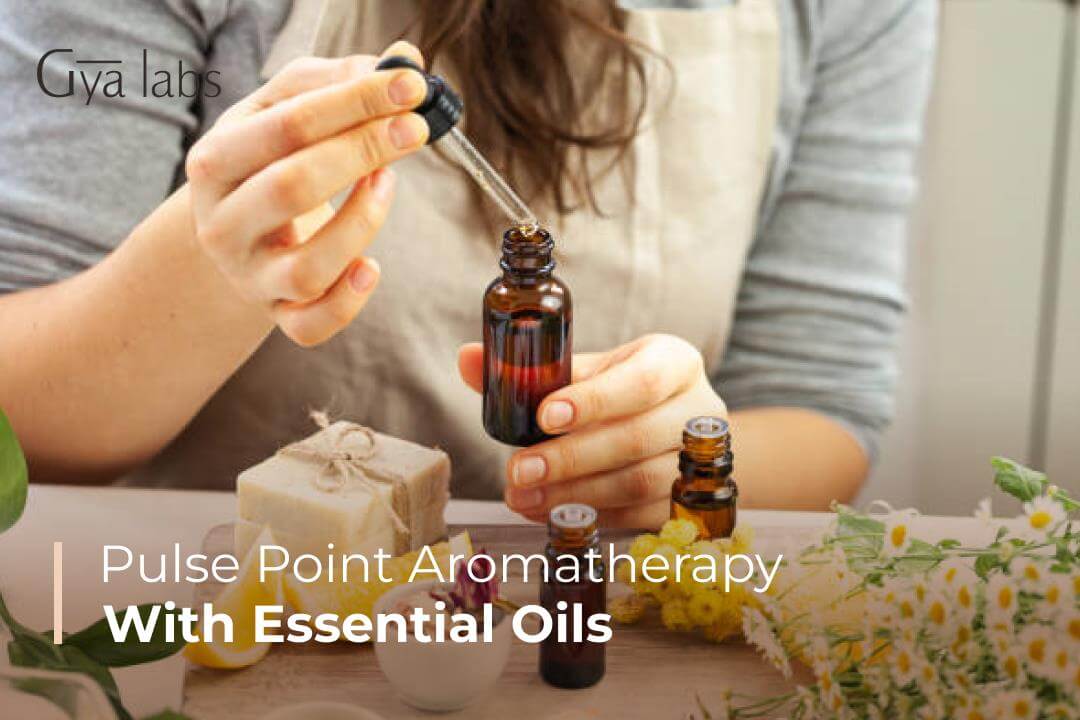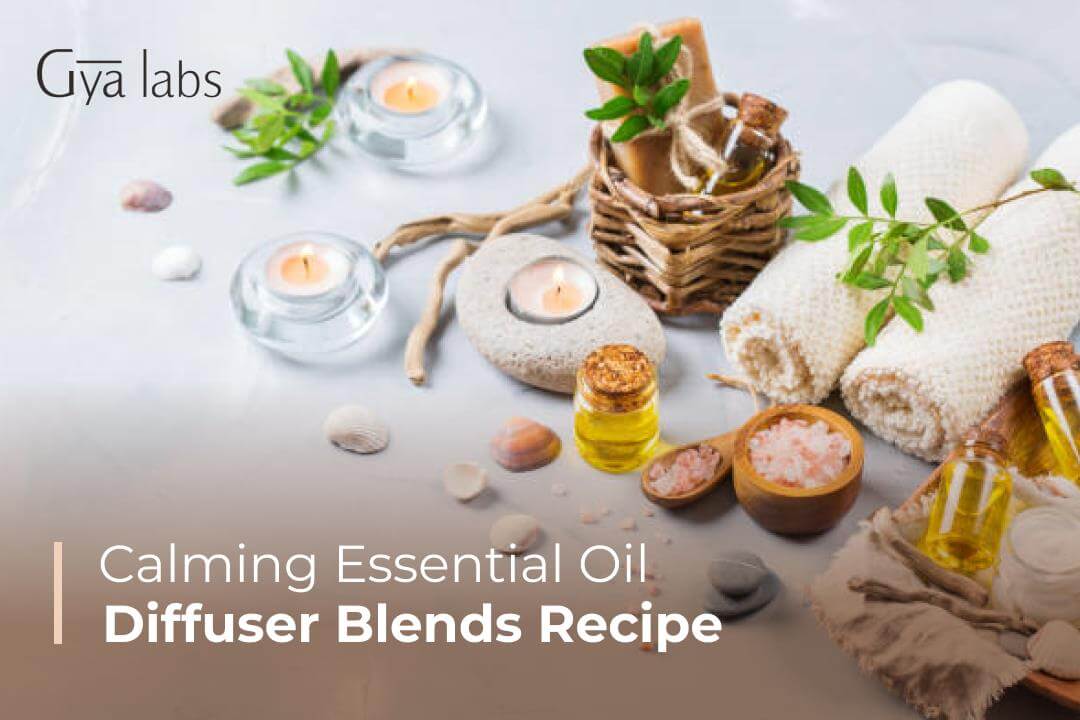Essential oils and their compounds have become increasingly popular for their various benefits, from relieving stress and anxiety to promoting relaxation and aiding with sleep. However, with the rise in popularity comes concerns about the safety of diffusing essential oils, especially for those with allergy or respiratory issues such as asthma (1).
In this blog, we'll explore the potential risks and benefits of diffusing essential oils for your lung health and provide you with tips on how to safely enjoy the benefits of essential oils. So, let's dive in and learn more about the safety of diffusing essential oils for your lungs!
Are Essential Oils Safe for Your Lungs?
Essential oils have been used for thousands of years for their therapeutic and medicinal properties. They are commonly used in aromatherapy, where they are inhaled or diffused into the air to promote various health benefits. However, when it comes to the question of whether essential oils are good for your lungs, the answer is not straightforward.
On the one hand, some essential oils help with their anti-inflammatory and anti-bacterial properties that can be beneficial for lung health. For example, eucalyptus oil or sweet orange essential oil are commonly used to relieve respiratory symptoms such as coughs and congestion.
Must Read: Top Essential Oils for Sinus Congestion
Peppermint oil has also been shown to have bronchodilator properties, meaning it can help to relax the muscles in the respiratory tract, making it easier to breathe (2).
On the other hand, some essential oils can be irritating to the lungs, especially because these essential oil are highly concentrated liquids and therefore not safe to inhale for prolonged periods.
For example, inhaling the vapors of essential oils such as cinnamon oil, pine oil, or clove oil can cause irritation and inflammation of the airways. Similarly, certain essential oils can cause allergic reactions in some people, leading to respiratory symptoms such as wheezing and coughing.
Overall, whether essential oils are good for your lungs or not depends on the specific oils and how they are used. It is important to use essential oils in moderation and it is always good to know of any potential adverse effects.
If you have respiratory issues or lung conditions like asthma or chronic obstructive pulmonary disease (COPD), it is best to consult with your healthcare provider before using essential oils.
Are Essential Oil Diffusers Safe to Inhale?
Essential oil diffusers have become increasingly popular as a way to enjoy the therapeutic benefits of essential oils. However, some people may wonder whether essential oils and diffusers really are safe for the lungs and are harmful to their health.
In general, essential oil diffusers are considered safe when used properly. When essential oils are diffused into the air, they are dispersed in small particles that can be inhaled into the lungs. This can be beneficial for respiratory and overall health, especially if the oils used have anti-inflammatory, antimicrobial, or other therapeutic properties.
However, there are some potential risks associated with using essential oil diffusers. The most common risk is irritation of the eyes, nose, or throat, which can occur if the oils are diffused in high concentrations or for extended periods. Some people may also experience headaches, dizziness, shortness of breath, or other symptoms if they are sensitive to the scent of certain oils.
Additionally, there have been concerns about the safety of essential oil diffusers that use heat, such as candle diffusers or electric diffusers that use a heating element. These types of diffusers can alter the chemical composition of the oils, making them less effective and potentially more harmful.
Which Essential Oils Are Good for Respiratory Issues?
There are several popular essential oils that are believed to be beneficial for lung health. Here are a few examples:
1. Eucalyptus Oil
Eucalyptus essential oil is commonly used to relieve respiratory symptoms such as coughs, congestion, and asthma. It has anti-inflammatory and expectorant properties that can help to loosen phlegm and ease breathing.
2. Peppermint Oil
Peppermint oil has been shown to have bronchodilator properties, meaning it can help to relax the muscles in the respiratory tract and improve breathing. It also has a cooling and soothing effect that can help to relieve respiratory symptoms.
3. Tea Tree Oil
Tea tree oil has antimicrobial properties that can help to fight infections and promote healing. It is often used to treat respiratory infections such as bronchitis and pneumonia.
4. Frankincense Oil
Frankincense oil is one of the best essential oils that has anti-inflammatory properties that can help to reduce inflammation in the lungs and improve breathing. It is also believed to have a calming and soothing effect on the respiratory system.
5. Rosemary Essential Oil
Rosemary oil is one of the natural essential oils and has expectorant properties that can help to clear the respiratory tract and ease breathing. It also has antimicrobial properties that can help to fight infections.
It is important to note that while these essential oils may be beneficial for lung health, they should be used with caution and in moderation. It is always best to consult with a healthcare professional before using essential oils, especially if you have a medical condition or are taking medication.
Which Oils Can Be Diffused Safely?
There are many essential oils that can be safely diffused when used properly. Here are a few examples:
1. Lavender Oil
Lavender oil is a popular choice for aromatherapy and can be safely diffused in small amounts. It has a calming and relaxing effect that can help to reduce stress and improve sleep.
2. Eucalyptus Oil
Eucalyptus oil is commonly used to relieve respiratory symptoms such as coughs and congestion. It can be safely diffused in small amounts to promote easier breathing.
3. Lemon Oil
Lemon oil has a refreshing and uplifting scent that can help to improve mood and energy levels. It also has antimicrobial properties that can help to purify the air.
4. Peppermint Oil
Peppermint oil has a refreshing and invigorating scent that can help to improve mental clarity and focus. It also has a cooling effect that can help to relieve headaches and respiratory symptoms.
It is important to make use of essential oils in moderation and to dilute them properly before diffusing. It is also important to choose high-quality oils from reputable sources and to be aware of any potential interactions or contraindications with medications or medical conditions.
If you have respiratory issues such as asthma or chronic obstructive pulmonary disease (COPD), it is best to consult with your healthcare provider before using essential oils.
DIY Essential Oil Recipes for Asthma & Respiratory Tract
Recipe #1: Respiratory Relief Blend:
Ingredients
- 3 drops eucalyptus essential oil
- 3 drops peppermint essential oil
- 2 drops tea tree essential oil
- 2 drops lemon essential oil
Instructions
Mix the essential oils together and add them to your diffuser. Diffuse for 30 minutes at a time to help relieve respiratory congestion and promote easier breathing.
Recipe #2: Congestion Clearing Chest Rub:
Ingredients
- 1/4 cup coconut oil
- 10 drops eucalyptus essential oil
- 5 drops rosemary essential oil
- 5 drops peppermint essential oil
Instructions
Melt the coconut oil in a double boiler and let it cool slightly. Add the essential oils to the coconut oil and mix well. Transfer the mixture to a glass jar and allow it to solidify. Apply a small amount to your chest and gently massage to relieve chest congestion.
Recipe #3: Soothing Steam Inhalation:
Ingredients
- 4 cups hot water
- 3 drops eucalyptus essential oil
- 2 drops lavender essential oil
- 2 drops tea tree essential oil
Instructions
Pour the hot water into a large bowl and add the essential oils. Lean over the bowl, covering your head with a towel to create a tent, and inhale the steam deeply for 5-10 minutes. This can help clear your sinuses and provide relief from respiratory symptoms.
Recipe #4: DIY Vapor Rub:
Ingredients
- 1/2 cup coconut oil
- 2 tablespoons beeswax pellets
- 20 drops eucalyptus essential oil
- 10 drops peppermint essential oil
- 10 drops rosemary essential oil
Instructions
Melt the coconut oil and beeswax pellets in a double boiler. Once melted, remove from heat and let it cool slightly. Add the essential oils and stir well. Pour the mixture into small containers and allow it to solidify. Apply a small amount to your chest or back to relieve congestion and promote easier breathing.
How To Diffuse Essential Oils & How To Use?
There are a few different ways to use essential oils safely and effectively. Here are some common methods:
-
Diffusing: Using a diffuser is one of the most popular ways to enjoy the benefits of essential oils. A diffuser works by dispersing the oils into the air, which can help to purify the air, improve mood, and provide other therapeutic benefits. To use a diffuser, simply add a few drops of your chosen essential oil to the water reservoir and turn it on.
-
Topical Application: Essential oils can also be applied directly to the skin, but they should always be diluted with a carrier oil such as coconut oil or almond oil to prevent skin irritation. To use essential oils topically, mix a few drops of the oil with a carrier oil and apply it to the skin, being careful to avoid sensitive areas such as the eyes and mouth.
-
Inhalation: Inhaling essential oils can provide quick relief for respiratory symptoms such as congestion and coughing. To inhale essential oils, add a few drops to a bowl of hot water and breathe in the steam, or place a drop on a tissue or cloth and inhale the scent.
-
Bathing: Adding essential oils to a warm bath can be a relaxing and therapeutic experience. Simply add a few drops of your chosen oil to the bathwater and soak for 15-20 minutes.
For more details about how to use essential oils in diffuser, read more.
It is important to use essential oils in moderation and to be aware of any potential interactions or contraindications with medications or medical conditions. It is also important to choose high-quality oils from reputable sources and to store them properly to maintain their potency. If you experience any adverse effects from using essential oils, it is best to discontinue use and consult with a healthcare professional.
Safety Precautions To Fight Dangers of Essential Oils
While essential oils can offer many benefits and are safe for most people, there are also dangers of essential oils. Therefore, it is important to take proper safety precautions when using them to avoid any potential harm. Here are some important safety tips to keep in mind:
-
Dilute Properly: Essential oils can cause irritation or sensitization if used undiluted, therefore, they should always be diluted with a carrier oil before applying them to the skin. A general guideline is to use 1-2 drops of essential oil per teaspoon of carrier oil, but this can vary depending on the oil and the individual's skin sensitivity.
-
Patch Test: Before using a new essential oil, it is important to do a patch test to check for any allergic reactions or skin sensitivities. Apply a small amount of diluted oil to a small area of skin and wait 24 hours to see if there is any redness, swelling, or itching.
-
Keep Out Of Reach Of Children And Pets: Using essential oils around kinds can be harmful. Therefore, they should be stored in a secure location out of the reach of children and pets, as some oils can be toxic if ingested.
-
Use In Well-Ventilated Areas: Use your diffusers in a well-ventilated area only. It is also important to follow the manufacturer's instructions for the specific diffuser being used.
-
Check For Contraindications: Some essential oils can interact with medications or medical conditions, so it is important to check with a healthcare professional before using them if you have any underlying health issues.
-
Purchase High-Quality Oils: Low-quality essential oils can be bad for your lungs, those essential oils may contain harmful properties, and also because such essential oils are not regulated before selling. Make sure the essential oils are approved by the Food and Drug Administration (FDA).To ensure the purity and potency of essential oils, it is best to purchase them from a reputable source. Look for oils that are labeled as 100% pure and therapeutic grade.
By following these safety precautions, you can enjoy the many benefits of essential oils while minimizing the risk of any potential harm.
Conclusion
In conclusion, essential oils can offer a wide range of therapeutic benefits for both the mind and body, but it is important to use them safely and responsibly. Whether you are diffusing essential oils to create a calming atmosphere, applying them topically for skin benefits, or using them for respiratory support, taking proper safety precautions is crucial.
By diluting essential oils properly, doing patch tests, keeping oils out of reach of children and pets, using in well-ventilated areas, checking for contraindications, and purchasing high-quality oils, you can minimize the risk of any potential harm and enjoy the many benefits of essential oils.
Always consult with a healthcare professional before using essential oils if you have any underlying health issues or are pregnant or nursing. By using essential oils responsibly, you can enhance your well-being and promote a healthy lifestyle.















